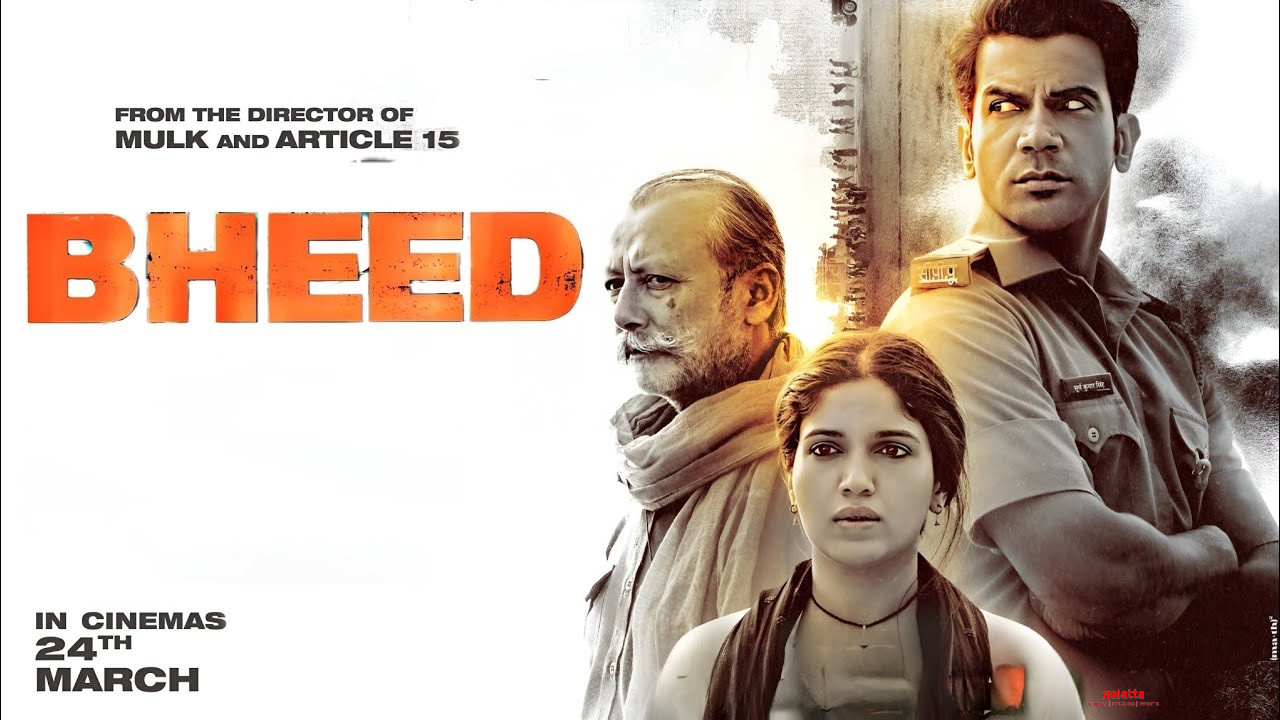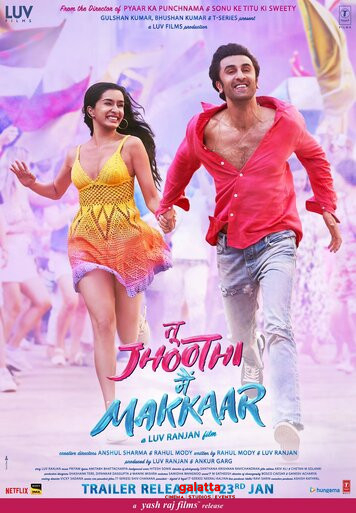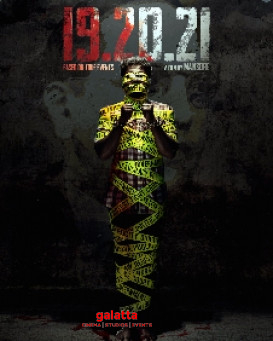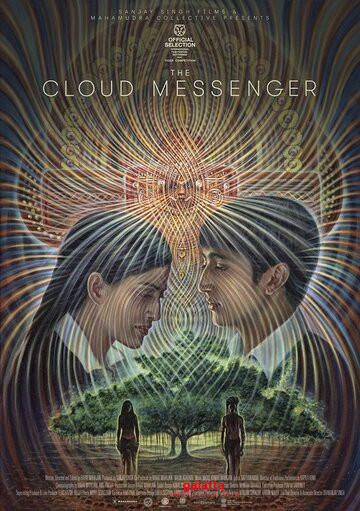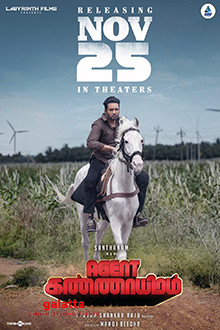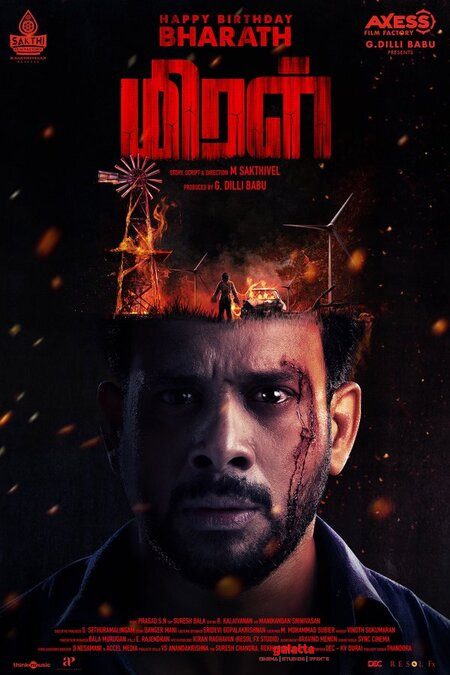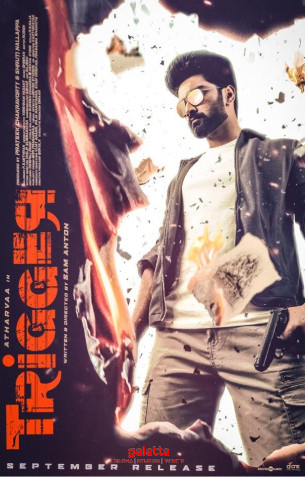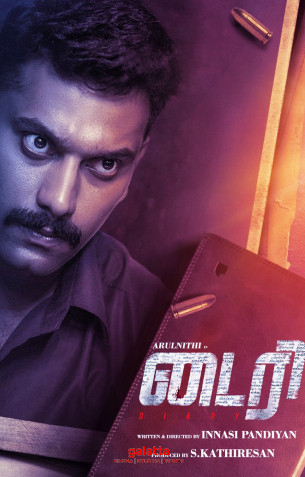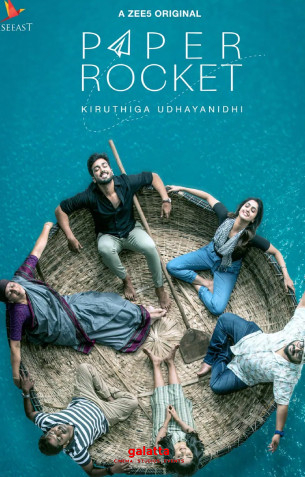Bheed Movie Cast & Crew
Anubhav Sinha's latest attempt at movie-making / conscience-pricking / dialogue-initiating is titled Bheed, and it gets going 13 days after the first pandemic-lockdown, when more migrants began walking back to their hometowns. Let's dwell, first, on that title, which refers to a crowd. "Bahut bheed hai," we say, when entering a crowded theatre or bus, but the bheed here refers to the billions that make up India. Yes, on the surface, the title is about the crowds of hapless migrants on the roads, but Anubhav always likes to zoom back a little from the issue in focus and talk a little more about the various aspects of our society, like caste and class. This is a film of metaphors and symbols. The action is set around a check post in Tejpur district, when states clamp down on their boundaries, refusing to let people enter or leave. That check post is the monolithic System through which we have to find ways to sneak through in order to live our lives.
Rajkummar Rao plays a cop who's the guardian of that check post – the "in-charge", as he is often called. The term is more than a little ironic because the man is a Dalit, and he is torn between being suppressed in the past and being the "oppressor" now. I use the word in quotes because he is only doing his job, which is to not allow the long line of people on the other side to pass through. Because I am currently watching The Last of Us, I was often reminded of a zombie-movie scenario. It's like a group of "humans" guarding themselves against a bheed of creatures baying for food. At one point, these poor migrants are actually referred to as animals. "They are creatures of the land," a chauffeur says. "They don't know how to swim. But because they are hungry, they keep coming back to the sea [symbolically, the vast cities]." The way the line is structured, the imagery it conjures up – it broke my heart.
Anubhav isn't beyond using Z-grade melodrama like showing a baby's face just before a train is going to mow down a bheed of migrants asleep on train tracks – but for the most part, he remains the objective, yet extraordinarily sympathetic, storyteller we have come to know from Mulk and Article 15. His programmatic design includes several "types" that make up this great nation of ours. We get a group of television reporters. We get a moneyed mother desperate to get her daughter back from a hostel (and she's even more desperate that her money isn't of help anymore). Dia Mirza plays this woman. I loved the scene where she thrusts some notes into a migrant's hands (the latter refuses), and yet, throws a fit when her chauffers gets down from the car to help this migrant. The character is a stand-in for all of us who throw money at a problem, but don't actually want to get our feet dirty and get down from our bubbles and do something to actually help others.
Like in Article 15, Anubhav uses a slushy river as a metaphor. This is where the migrant stumbles and needs help, and this is where the moneyed woman refuses to help, screaming at her chauffer while he gets down to help. (If you remember Article 15, the privileged protagonist has to descend into the slushy swamp that is the "real India" before he earns the right to save the girl.) Some of the lines may be too direct, like when the Dia Mirza character says that her chauffer, unlike her, never complains about having a headache, and he replies that he is used to it. But the way the scene is set up and staged – plus, the roiling vat of guilt Anubhav's films throw us into – make these misgivings go away easily. The black-and-white cinematography helps. It gives us a bit of distance, like witnessing another world, even as the narrative embroils us within it.
Some of the sidebars are truly horrifying to watch, like the visual of people hidden in a cement mixer. (Lords of Lockdown, a documentary by Mihir Fadnavis, would make a good companion piece to Bheed. It chronicles six months of the pandemic-lockdown.) Pankaj Kapoor plays a security guard who's anti-Muslum and holds his caste pride close to his heart. Does this description make him sound one-dimensional, a caricature designed to make easy points? But this man transforms into 3D as the film progresses. Even behind his "faults", we slowly begin to see a human being. We begin to see that his father used to draw up astrological charts to predict other people's futures, and what an irony that he could not predict his own son's current predicament! When this character enters a mall, looking for food, the emptiness – the lack of bheed-ness – of the location looks obsence. All this space going waste when the people outside are dying of hunger in the heat! At the end, when he asks what he did wrong to end up in this situation, the Rajkummar Rao character throws the line right back at him, bringing up his oppresssion over generations. What wrong did he and his people do!
Every performance is on point, and it helps that the screenplay gives each character personal as well as political moments – and thus, Anubhav is able to weave in a love interest in the form of the doctor played by Bhumi Pednekar. Thanks to her, Rajkummar Rao's butt defines his character as much as his beliefs. Though Rajkummar Rao plays the nominal protagonist and gets a small character-growth arc, this is a film that belongs to everyone, the bheed. By setting up conflicts between sets of characters, Bheed becomes a kind of mosaic of issues – and Anubhav, wisely, does not try to make too much of a point. He is not trying to cover the plight of migrants during the pandemic. He is putting a microscope on this particular situation at this particular check post. He does not try to "solve" anything, and even the end is just a temporary peace, a small white flag that ends hostilities for a while. The story in this movie is still going on.
